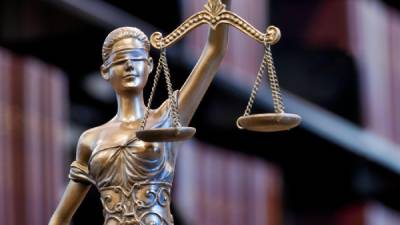Table of Contents
Judicial System: Judges, Courts, and Prisons
(Topics: Administration & Security | Back to Home)
For many Americans, the main experience they have with their government never crosses the justice system. At most we will get a speeding ticket for being in a rush. Most of us will never go to court or speak to a judge. In fact, most Americans will never even serve on a jury [1].
In fact: only one in twenty Americans will ever be incarcerated in their lifetime [2]. Which means most of us have no experience with an enormous part of our government.
This makes it exceptionally difficult to discuss this topic, because it's something few of us know personally. While we may have a friend or family member who has been arrested, the courts and prisons systems aren't like, say, the education system—where almost all of us have spent years of our lives.
In fact, we've probably spent more time watching TV programs about cops, criminals, and courtrooms than we've ever been there ourselves. That makes it hard to talk about what's really happening, because there is so much media presence in our brains.
Let's talk about the factors at work.
Responsibility and Accountability
People who work in the justice system—from police officers to federal judges to corrections officer–have an incredible amount of personal discretion. You may have experienced this before. If you get pulled over, the cop make a judgment call. They decide if they are going to give you a warning, take you into custody, or something in between. Likewise, judges from small claims up to the Supreme Court determine what cases they want to hear.
There are, of course, guidelines. There are internal mechanisms designed to ensure that these decisions are generally reasonable. But largely speaking the law is not consistently applied. If you commit a crime, the judge will sentence you not based on what the statue says, but on their interpretation of your actions in the context of your life as presented in the case.
| Famously, for example, an Israeli study demonstrated that the worst time to go in front of a judge was right before their lunch break. It was initially speculated that judges were hungry and thus issued harsher sentences. But it turns out that the main problem is that people who don't have an attorney tend to get worse outcomes, and those cases tend to be last on the docket before a meal break [3]. Which shows that people don't get a fair shake in court—but figuring out why is exceptionally difficult. |
It's incredibly hard to parse this within the context of our society. Consider two cases, defendant A and defendant B, both of whom are accused of the same crime, both of whom have pleaded guilty, and both of whom have no previous criminal record. One would assume that A and B would tend to get the same sentence. But according to the U.S Sentencing Commission (which is a bipartisan government agency) that's not the case. They claim that about 20% of the time black defendants get longer sentences than white defendants despite similar situations [4].
Obviously, you have to believe the data for this to be a meaningful narrative. But it's not “break the law, suffer the consequences.” Rather it's break the law, but maybe don't get caught, and if you're caught, maybe not be arrested, and if you're arrested, maybe no one presses charges, and if someone presses charges, maybe the system goes easy on you for any number of reasons.
And sometimes it's the opposite: don't break the law, but suffer the consequences as if you did.
How often do these exceptions to the rule of law happen? There's no way to say.
But they do happen. And the first step is admitting there are problems in the system, even if we're not sure what the problems are exactly or how widespread they are.
Our justice system is not sufficiently accountable or responsible. There's more to do be done to understand what's really going on.
Political vs. Administrative
In some respects the judicial branch of the government ought to be largely administrative. Bureaucrats that follow the rules and implement the policies set by the democratically-elected government, and automated systems that work the way we agreed the government is supposed to work.
But a great deal of American justice is political. At the state level, about 90% of judges are elected [5]. They have to run a political campaign and get people to vote for them, which means they have a reason to make promises to the public for or against an issue. Appointed officials can be a bit more independent, especially if they have a term of service for several years.
We need the people who make judgements and hand out sentences to be impartial, but we don't have good systems in place for them to be impartial.
Remembering the Romans
 You may recall the Roman goddess Justitia, aka Lady Justice. She's often depicted as holding a balance scale in her hands while a blindfold covers her eyes.
You may recall the Roman goddess Justitia, aka Lady Justice. She's often depicted as holding a balance scale in her hands while a blindfold covers her eyes.
This is how the law is supposed to work. Each situation is weighed fairly, and the person doing the evaluation makes the judgements solely on the facts and not on appearances.
This is where we must be headed. But first, we have to admit that there is a problem. Justice, today, is not just.
[1] Probably around 75% of us will never be a juror in our lifetimes.
[2] https://bjs.ojp.gov/content/pub/pdf/Llgsfp.pdf
[3] https://www.pnas.org/content/108/17/6889 and https://www.pnas.org/content/108/42/E833.full
[4] https://abcnews.go.com/Politics/black-men-sentenced-time-white-men-crime-study/story?id=51203491
[5] According to a book by a Harvard Law professor, or if you're a fan of the acerbic comedian Jon Oliver, a video report.